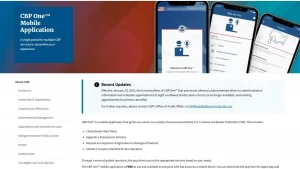With the ongoing political deadlock in Washington D.C., Congress has been unable to pass any of the spending bills needed to keep the U.S. Government open beyond September 30, 2023. Unless any of the spending bills are passed and signed into law, funding for government agencies will run out of money by midnight on October 1, 2023.
Government shutdowns are not new and have been a constant recurring issue over the past few decades. If government agencies are forced to close due to budgetary reasons, all except essential government employees are furloughed and prohibited from working. In terms of U.S. immigration agencies, the following is an overview of how certain immigration agencies have operated during previous shutdowns:
United States Citizenship and Immigration Services (“USCIS”): The USCIS is a fee-funded agency so if the government shuts down, it is generally business as usual. The exceptions to this are programs that receive appropriated government funding such as E-Verify and the EB-5 Immigrant Investor Regional Center Program (“EB-5 Program”). However, since the EB-5 Program has already been authorized through September 30, 2027, it should not be impacted by any government shutdown.
Department of State (“DOS”): Immigrant and nonimmigrant visa processing at U.S. Embassies and Consulates are fee-funded and thus, not normally impacted by a government shutdown. The DOS consular operations can however be impacted if there are insufficient fees to support operations at a particular post. In the event that a post runs short of money due to a government shutdown, operations will be limited to diplomatic visas and “life or death” emergencies.
Customs and Border Protection (“CBP”): The CBP officers at Ports of Entry are federal law enforcement agents and thus, considered “essential.” Ports of Entry will remain fully operational although processing of certain applications filed at the Port of Entry may be impacted.
CIS Ombudsman: The Ombudsman’s Office under the Department of Homeland Security will close and not accept any online inquiries for its intake system.
Congressional Constituent Services: Some congressional offices may close in the wake of a government shutdown. Constituents are encouraged to contact their individual offices for more information.
For more information, contact us at info@enterlinepartners.com and speak with a U.S. immigration attorney in Ho Chi Minh City, Manila and Taipei.
ENTERLINE & PARTNERS CONSULTING
Ho Chi Minh City, Vietnam Office
146C7 Nguyen Van Huong St, Thao Dien Ward,
District 2, Thu Duc City
Ho Chi Minh City, Vietnam
Tel: +84 933 301 488
Email: info@enterlinepartners.com
Facebook: Enterline & Partners – Dịch vụ Thị thực và Định cư Hoa Kỳ
YouTube: @EnterlineAndPartnersConsulting
Website: http://enterlinepartners.com
Manila, Philippines Office
Tel: +63 917 543 7926
Email: info@enterlinepartners.com
Facebook: Enterline and Partners Philippines
Website: https://enterlinepartners.com/language/en/welcome/
Copyright 2023. This article is for information purposes only and does not constitute legal advice. This article may be changed with or without notice. The opinions expressed in this article are those of Enterline and Partners only.







